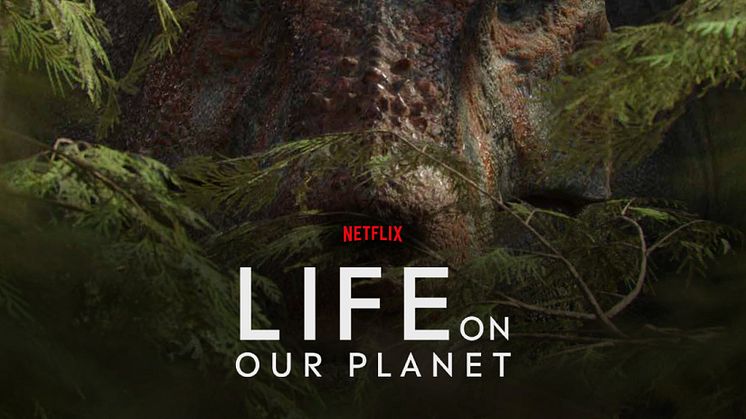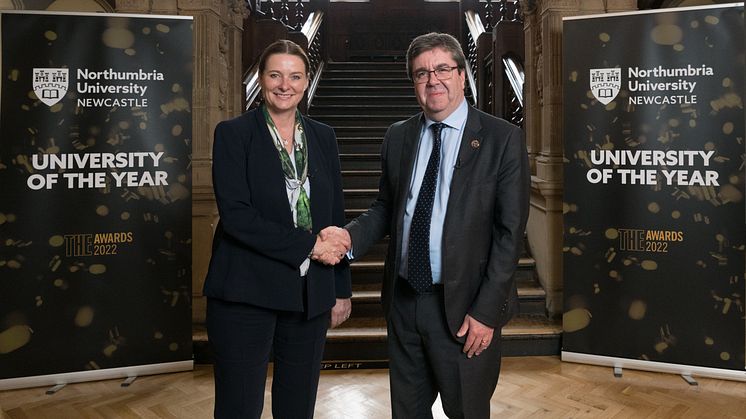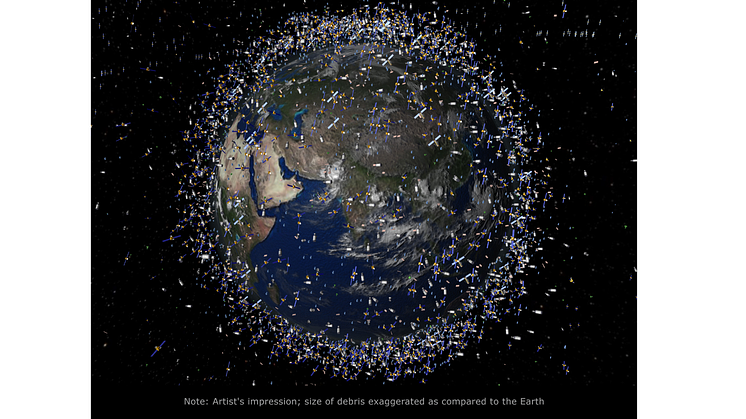
Press release -
Researcher’s knowledge called upon for new Netflix series, Life on Our Planet
Insights from an expert in past climates at Northumbria University have been used to help inform the science and technology behind a much-anticipated new Netflix series which promises to bring the Earth’s oldest creatures back to life.
Life on Our Planet, an eight-part series which premieres on Netflix on Wednesday 25 October, aims to chronicle the ongoing rise and fall of life on Earth over the last four billion years and the key mass extinction events which have led to the biodiversity we know today.

Created by Silverback Films in association with Steven Spielberg’s Amblin Television, the series is narrated by actor Morgan Freeman, and first came to the attention of Dr Matthew Pound from Northumbria’s Department of Geography and Environmental Sciences when he was contacted by a former colleague.
“I did my PhD with Dr Tom Fletcher who is a Scientific Researcher with Silverback Films and he got in touch about the series last year,” explained Dr Pound, whose work looks at how climates and environments have changed through geological time, using fossilised remains of plants, fungi and plankton to reconstruct the environments the organisms would have inhabited.
“I mainly focus on the last 65 million years and produce global maps of vegetation, climate, soil and lake distributions, so it was good to hear from Tom and I was happy to help.”
Dr Pound’s input on plants during the Cenozoic era helped inform the screenplay developed around one particular episode called Inheriting the Earth, which features a now extinct rhinoceros-like mammal called a Megacerops that lived millions of years ago.
Dan Tapster, the showrunner for Life on Our Planet at Silverback Films, said: “Dr Pound was involved in Episode Seven’s Megacerops scene, talking in detail about what the climate and flora were like at the time. It was with his help that we were able to film backplates in a location that was correct from a paleo-ecology point of view. This helped to bring this amazing animal back to life like never before.”

Across the series, audiences will be presented with depictions of the first single-celled life form, to the first animals to move out from the sea and onto land, and the first creatures to take flight. One of Earth’s longest-lived dynasties, the dinosaurs, will also be brought to life.
“It’s fantastic that the team involved in the creation of this series have taken time to make sure what they bring to screen is informed by all sorts of contributors like myself and I was pretty chuffed when I found out my input has played a small part,” Dr Pound added. “It’s also good to know that the work carried out by researchers like myself can have an impact on the development of something like this, which I’m sure will be watched by huge audiences internationally. I’m looking forward to tuning in.”
Discover more and watch the trailer for Life on Our Planet here.
Topics
Categories
UNIVERSITY OF THE YEAR 2022 (Times Higher Education Awards)
Northumbria is a research-intensive university that unlocks potential for all, changing lives regionally, nationally and internationally. Find out more about us at www.northumbria.ac.uk
--- Please contact media.communications@northumbria.ac.uk with any media enquiries or interview requests ---










